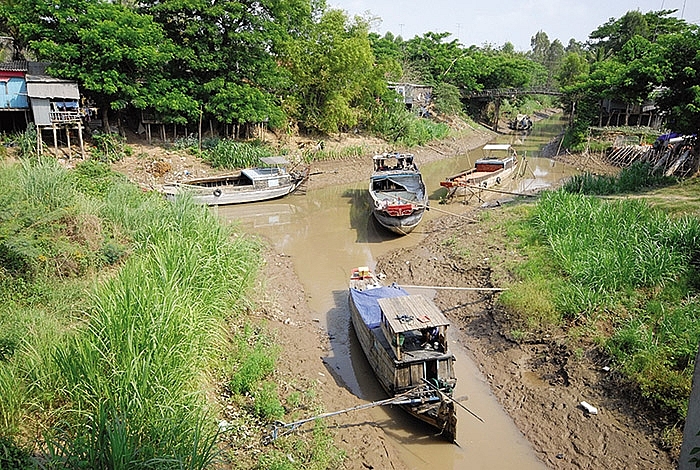Approaching the climate conundrum
 |
| Helen Clark, former Prime Minister of New Zealand and former head of the United Nations Development Programme |
What do you believe Vietnam has achieved in tackling climate change and pursuing environmental sustainability over recent years?
Vietnam is one of the most vulnerable countries with its very long coastline, and also with the particular issue around the Mekong Delta. When I was the United Nations Development Programme (UNDP) administrator I paid a visit to the delta, probably four or five years ago, and it was quite scary given the experience of the saltwater, inundation and the rising sea levels. It’s very serious for Vietnam because the Mekong Delta has been the food basket of the nation. So the adaptation challenges for Vietnam are quite significant but I think there’s quite a high level of awareness from the government and the people here.
I was obviously familiar with the UNDP work which was supporting authorities on the adaptation and resilience agenda. I also noticed at the time a survey of awareness within countries of climate change issues. Vietnam came out as having the most aware citizenry of the climate change challenge - about 45 per cent of Vietnamese said this was the top issue world leaders should address, well ahead of anywhere else. So I think awareness is high which is good, I think the government knows that the adaptation challenge is significant. I think also Vietnam has a large population and historically not had clean energy. So moving to clean and sustainable energy would be a very important part of the agenda and ensuring buildings are energy efficient. Of course it’s easy for new buildings to be energy efficient but this country also has a lot of older habitations.
I understand the metro is being built here, so it’s important for an alternative to private cars. I think Vietnam has the opportunity to really push the sustainability agenda and I can only encourage the governance at national level and provincial level to really pursue this extremely seriously.
What are the practical actions that the county can further carry out in response to climate change and to ensure inclusive growth in the years to come?
 |
| photo: Le Toan |
Vietnam, like all countries, needs an energy strategy that goes beyond fossil fuels. We need an end date to fossil fuels.
In the past, the UNDP led a peer review of Germany’s sustainable development strategy, and one of the big issues for Germany has been about coal. When we presented the report to Chancellor Merkel, later that day she made a speech saying “we’re going to set a date for the transition, we’re getting out of coal”. So that’s really the kind of vision that we need and countries have to get out of coal, have to move to wind energy, solar energy or hydrogen power, and really move towards new technologies.
Secondly, clean transport is a must: cars off the road which is good for air quality; investment in public transport; designing cities that are friendly to pedestrians and cyclists. Hanoi used to be a city of bicycles, this is something Amsterdam and Copenhagen are famous for – it’s good for people’s health, too.
Waste disposal, landfill and rubbish dumps are big methane gas producers, so a vision for zero waste of landfill would include “reduce, reuse and recycle.”
On the adaptation side, as climate change worsens there will be an impact on the population and for some, people will leave those areas. Vietnam needs to integrate it into its development planning now as people are going to leave exposed areas.
The World Bank issued a report in March which carried out an estimate for South Asia, sub-Saharan Africa and Latin America, and forecast that in the worst case scenario close to 250 million people would leave exposed areas. Now the worst case scenario is what we’re heading for because countries are not doing enough under the Paris Agreement. We have to plan for the worst if major economies don’t really change their dependence on fossil fuels and if we don’t stop deforestation.
Most of these climate change migrants will be internal and right now countries that are most exposed like Vietnam need to be thinking about how we are going to manage this - where are people going to go, and where do we need to plan these new human settlements. Even if the vision of Paris is achieved, it would take decades for our climate to stabilise. Things are going to get a lot worse before they have a chance of getting better. Adaptation really has two aspects. First, there will be climate migration and it will be internal for most countries. Secondly, it’s adaptation for the people who don’t move: what about their smart agriculture, for example the adaptation of the agriculture that’s going on in the Mekong Delta, and what about adaptation of infrastructure and housing.
Vietnam is very conscious of this challenge so I’m really confident that already the country is planning around the impact on the most exposed areas, but I also think planning for the people who are going to leave those areas and where they are going to go would be important.
Can developing countries like Vietnam keep up with rapid growth without having to compromise necessary investment in disaster risk reduction and climate change adaptation?
What I’d recommend is that Vietnam carefully studies the work of the New Climate Economy Commission. What that commission shows is that countries can grow and prosper while doing it sustainably. So we don’t have the luxury now of grow first and clean up later – that brought us to the brink of many extinction of species, loss of habitat and getting to the tipping point with the environment where what we’re doing now is probably going to cause regression in human development.
UNDP modelled these factors seven years ago on human development: on the worse case projection, we forecast worsening trends with the environment and with inequality would see human development slow right down, and actually see sub-Saharan Africa and South Asia go into regression.
There’s also a very important report of the Rockefeller Foundation Lancet Commission on Planetary Health which talks about that tipping point where in order to make the gain in human health and development, we’ve done that sort of growing first and not cleaning up. Well now, that’s starting to hurt us and if you think of warming climate, for already-hot places a warming climate can make places virtually inhabitable which can be the case in South Asia and even here in Vietnam. There will be more health problems from the warming climate: more heat stress and more dehydration, and the most vulnerable ones are children and the elderly.
And now we’re also seeing more mosquitoes and the diseases they bring, which means more possibility of spread of malaria and other very challenging diseases.
Unless we get a grip on this irresponsible growth that the world has seemingly had forever, it’s ultimately going to halt our future potential for human development.
What the stars mean:
★ Poor ★ ★ Promising ★★★ Good ★★★★ Very good ★★★★★ Exceptional
Related Contents
Latest News
More News
- NAB Innovation Centre underscores Vietnam’s appeal for tech investment (January 30, 2026 | 11:16)
- Vietnam moves towards market-based fuel management with E10 rollout (January 30, 2026 | 11:10)
- Vietnam startup funding enters a period of capital reset (January 30, 2026 | 11:06)
- Vietnam strengthens public debt management with World Bank and IMF (January 30, 2026 | 11:00)
- PM inspects APEC 2027 project progress in An Giang province (January 29, 2026 | 09:00)
- Vietnam among the world’s top 15 trading nations (January 28, 2026 | 17:12)
- Vietnam accelerates preparations for arbitration centre linked to new financial hub (January 28, 2026 | 17:09)
- Vietnam's IPO market on recovery trajectory (January 28, 2026 | 17:04)
- Digital economy takes centre stage in Vietnam’s new growth model (January 28, 2026 | 11:43)
- EU Council president to visit Vietnam amid partnership upgrade (January 28, 2026 | 11:00)

 Tag:
Tag:




















 Mobile Version
Mobile Version